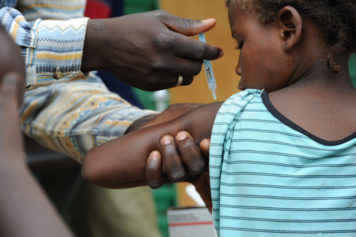
College campuses are no stranger to medical outbreaks, which is why most campuses will require a vaccination record before a student can live in the dormitory. Some diseases like bacterial Meningitis are common among adolescents and young adults and occur sporadically. In fact, about 98% of cases of this serious brain infection occur sporadically according to Dr. Thomas Clark of the Center for Disease Control and Prevention (CDC). Thus, there is no evidence of how the outbreak started.
There have been eight identified cases so far at Princeton, one at the University of California Riverside, and two at the University of California Santa Barbara.
Per CDC guidelines, an outbreak is considered a primary attack of 10 or more cases per 100,000 in less than 3 months, and vaccinations are recommended to control an outbreak.
The symptoms of bacterial Meningitis can develop quickly and include sudden fever, headache and a stiff neck. Often times other symptoms will include nausea/vomiting, sensitivity to light and confusion.
Untreated, this can lead to more severe symptoms like a seizure or coma, thus why treatment as soon as possible is critical, or in this case, prevention.
Some people have expressed concerns over the side effects of the unapproved drug versus the chances of a fatal outbreak.
The more common side effects for adolescents and adults are headache, nausea, pain or swelling at the injection site, and some muscle pain. But the student reaction seems positive as 76% surveyed by the college paper, The Daily Princetonian, will get the vaccine. So far about a third of the campus body has received the vaccine.
This “type B” meningitis behaves similarly to its “type C” cousin, also commonly found in the United States, meaning it has the same symptoms and potential to kill. The CDC expresses that it is safer to get the vaccine than to go without it.
“Thankfully, none of the cases here have been fatal, but it’s fatal in 10 to 15% of the cases,” said Dr. Thomas Clark, Chief of Meningitis Division of CDC. “We know 99 to 100% of people that get this vaccine get antibodies that we consider protective and there’s an excellent safety profile with this vaccine.”
The outbreaks between the universities are unrelated.
There’s no word on whether the vaccine will be approved for the general population or for at least the University of California Santa Barbara.
The doses will be distributed in two stages, with the second booster shot scheduled for February.
S.C. Rhyne is a blogger and novelist in New York City. Follow the author on twitter @ReporterandGirl or facebook.com/TheReporterandTheGirl. Check out her website at http://www.SCRhyne.com


